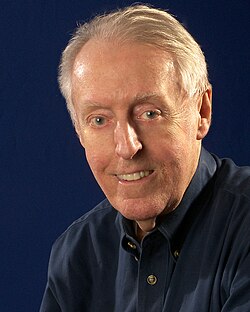Thomas Fleming: Four Pages a Day
The author Thomas Fleming died this week at the age of ninety.
As I described back here, in 1960 Tom was a journalist putting out his first book. Now We Are Enemies was the first full-length narrative of the Battle of Bunker Hill published since the nineteenth century. It launched his career as a historical writer.
Inspired by advice he received early on to write four pages a day, six days a week, Tom completed more than fifty books in all. The best-selling title was probably Liberty!: The American Revolution, based on the P.B.S. television series. But his own studies of the Revolutionary War covered everything from a single battle in New Jersey (The Forgotten Victory) to Yorktown (Beat the Last Drum) and beyond (The Perils of Peace).
Tom also wrote on other periods of American history, he wrote historical fiction, and he wrote books for younger readers. In 2010 I got to attend a staged reading of a play he had composed decades earlier about Dr. Joseph Warren and Dr. Benjamin Church.
I had the pleasure of meeting and corresponding with Tom a few times. What struck me most was his enthusiasm for researching history and communicating it. To illustrate that, in 2009 I analyzed how he’d come to misattribute a few words about Dr. Warren to Abigail Adams. The next time we talked, Tom brought up that post, congratulated me on spotting what had happened, and even seemed happy to see an explanation. A small slip fifty years earlier meant much less to him than the pleasure of learning more.
As I described back here, in 1960 Tom was a journalist putting out his first book. Now We Are Enemies was the first full-length narrative of the Battle of Bunker Hill published since the nineteenth century. It launched his career as a historical writer.
Inspired by advice he received early on to write four pages a day, six days a week, Tom completed more than fifty books in all. The best-selling title was probably Liberty!: The American Revolution, based on the P.B.S. television series. But his own studies of the Revolutionary War covered everything from a single battle in New Jersey (The Forgotten Victory) to Yorktown (Beat the Last Drum) and beyond (The Perils of Peace).
Tom also wrote on other periods of American history, he wrote historical fiction, and he wrote books for younger readers. In 2010 I got to attend a staged reading of a play he had composed decades earlier about Dr. Joseph Warren and Dr. Benjamin Church.
I had the pleasure of meeting and corresponding with Tom a few times. What struck me most was his enthusiasm for researching history and communicating it. To illustrate that, in 2009 I analyzed how he’d come to misattribute a few words about Dr. Warren to Abigail Adams. The next time we talked, Tom brought up that post, congratulated me on spotting what had happened, and even seemed happy to see an explanation. A small slip fifty years earlier meant much less to him than the pleasure of learning more.


1 comment:
Another great gone. He will be missed.
Post a Comment